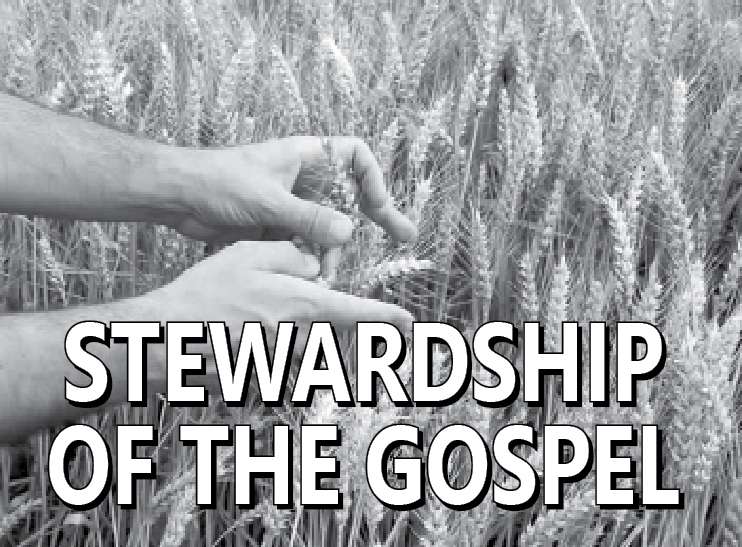
Introduction to Biblical Sacrifices with New Testament Implications
Pr. Thomas Cherian
Sacrifice is a word that evokes multiple meanings and connotations in modern contexts. In the Old Testament (OT), early Christianity, and their wider cultural worlds, sacrifice is best defined as the ritualized slaughter of animals and the processing of their bodies in relation to supernatural forces. Ritualized processing was also applied to non-meat foods and drink, such as grain, olive oil, and wine. The English word ‘sacrifice’ derived etymologically from a Latin term that means ‘make sacred.’ This etymological meaning is quite appropriate for the rituals in the OT in ancient Israel. In the OT, Yahweh is always the designated or assumed recipient of legitimate Israelite sacrifice.
This article is an attempt to pursue the meaning of sacrifice for the Israelite, before determining its meaning and application to the believers in the New Testament (NT).Terms and Meanings of Sacrifice
Various terms and phrases are used for sacrifices in the OT. The Hebrew expression “to present an offering” is a combination of the verb “to present, bring near, offer” (hiqrib) and its cognate noun “offering” (qorban). The Hebrew word for sacrifice is ‘zebah’ (Lev 3:1) and is used in relation to the “peace offering.” There is the more specialized term `olah, which refers to the whole burnt offering regulated in Leviticus chapter one. The term ‘mincha’, is employed in a technical sense in Leviticus chapter 2 for the Grain Offering. This can also mean gift or tribute in general. Besides Burnt and Grain offerings, Leviticus mentions three more main offerings such as Peace (shelem in Lev 3), Sin (chatat in Lev 4) and Guilt (asham in Lev 6) offering.
The terms ‘offering’ and ‘sacrifice’ hereafter will be used interchangeably for both grain and animal offerings.
Brief History of Sacrifice
Sacrifices were a key part of the practice of relationship with God instituted by Yahweh himself.
The killing of animals by the shedding of their blood was normally associated with atonement and God’s blessing, as expressed in His covenants in Genesis. This laid a vital foundation for the origin of worship and sacrifice, intended to correct the distortions and perversions of it over a period of time by sinful men. Much of Israel’s understanding of sacrifice was therefore based on the divine revelation in Genesis.
In Gen. 4:1-5 we see the first recorded animal sacrifice by man, where “fat portions” were offered (cf.Lev. 3:16b). After the flood, Noah offered animal sacrifices to God as burnt offerings (Gen. 8:20) and God gave the animals (excluding their blood) to them for food, seemingly for the first time(Gen. 9:1-7). The prohibition against eating blood and shedding man’s blood was later on endorsed in the Mosaic Law (Lev. 3:17).
God instructed Abraham to offer up Isaac as a ‘burnt offering’ (Gen. 22:2ff.). During the post Mosaic period, after the tabernacle had been established, the nation continued to offer burnt, grain, drink, and peace offerings on solitary earthen altars as well as on the altar in the tabernacle. In some cases such altars and the burnt or peace offerings presented on them were a means of calling on the name of the Lord in specific situations (e.g., Gideon in Judges 6:24-27; the Benjamites in Judges 21:4; Samuel in 1 Sam 7:8-10; David in 2 Sam 24:25; and Elijah in 1 Kings 18).
Occasions of Sacrifice
The sacrifices in the OT were generally offered at scheduled times or occasions. Some offerings were to be made every day, in the morning and evening (Ex. 29:38-42; Num. 28:3, 6, cf. 2 Chron. 2:4, etc.) and some others on specific days like the Sabbath day (Num. 28:9-10), beginning of each month (Num. 28:11), during Passover celebration (Num. 28:16), at the Feast of Weeks and Trumpets (Num. 28:27), and also during the celebration of the new moon (Num. 29:6).
Sacrifice in the New Testament
Today, Christian service, in the church and in the community, is compared to ‘sacrifice’ (Heb. 13:15-16; cf. Phil. 4:18; 1 Pet. 2:5). The only burnt offering that can atone for sin has been made by Christ once and for all. Christians no longer have to bring their lambs to the altar to receive forgiveness of sins. But Christians are expected to bring a sacrifice which involves praising God for his grace and declaring one’s intention to love God and keep His commandments. Now that the animal sacrifice is not needed, praise and good works by themselves constitute the proper sacrifice.
Earlier, man could only approach God by means of the tabernacle, the priesthood, and the sacrifices. Today, believers can boldly come to God, through the person and work of Jesus Christ (Heb. 4:16). There are however, certain important lessons one can learn from the OT sacrifices that will also give us a better understanding of sacrifice in the NT. Some of the important ones are highlighted below.
Lessons from the Old Testament Sacrifices
1) Personal Encounter
As mentioned above the etymological meaning of the root word for sacrifice explains that the individual has to come near to the altar to offer sacrifice. In other words the offerer cannot send somebody else to deal with his/her life. Each one has to give an individual account of his/her sins or wrong doings on a daily basis. In the NT God has given us the privilege to come near to the throne of grace through Jesus Christ.
2) Heart of Gratitude
Whenever somebody offered anything to God, whether animal or grain it always reminded them that all they possess, belonged to God and therefore should have a grateful heart (Deut. 26:3-5a). One should always acknowledge that God is the source and reason for all the material as well as the spiritual blessings in our lives. Never should anyone take credit for their achievements but should always depend upon God (Deut. 6:10-12; Matt. 6:11). The truth is that we can survive only by abiding in Him and His word, the Bread of Life (cf. John 15:7).
3) The Heart of Sacrificial Giving
Sacrificial giving is one way to express our gratitude towards God. While it may be true that most Christians give, it is doubtful whether we are sacrificial givers. What kind of giving, then, is sacrificial? It is the kind of giving which depletes our reserves, and which causes us to look to God for our needs for the next day. We see this kind of giving in the OT when the Israelites offered up the first fruits of their fields and cattle, trusting God to provide an additional harvest or cattle.We find this kind of giving in the first century Macedonian church, which gave out of their poverty (2 Cor. 8:1-2). Therefore, let’s give preference to God’s work and His Kingdom as was the attitude of the poor widow in Lk. 21: 2. India needs our sacrificial offering to be evangelized at a better pace. Let’s come out of the denominational barriers to help missionaries working in the tough and remote corners of our country. Never forget the fact that God used someone’s sacrificial time, money and even life to bring us to the saving knowledge of Christ. Now it’s a payback time for us. Let’s therefore, cheerfully support those who have devoted their lives for ministry (Num. 18:21-24; 1 Cor. 9:13-14).
4) Perfect Sacrifice
In the Old Testament the person bringing the offering whether rich or poor could come with offerings according to their ability but the most important thing is the quality of the offering. It was mandatory to bring a perfect (unblemished) offering because only perfect animals were acceptable in worship (Lev. 1:3). Only the best is good for God. Sadly, many Christians are satisfied with the quantity and not the quality. Several Christians are diluting the Word of God in their teaching, preaching and writing ministry. Some people are more concerned about the music or PA system than the presence of God. Such offerings are termed as second rate in Malachi chapter 1.
5) Expensive Sacrifice
Israelites were expected to bring young male animals for sacrifice. They were considered as rare or more expensive due to their role in the reproduction process. The male could reproduce many offspring, while the female would produce (normally) but one offspring. To give up a male was considered a greater loss compared to the female. In each case the animals sacrificed were young, had never yet produced for its owner. On the other hand the grain to be offered had to be ‘fine.’ To obtain fine flour entailed a great deal of extra effort on the part of the person who ground it, for it was not something which one purchased from the store. Such ‘fine’ flour was the one that was fit for a king (cf. 1 Ki. 4:22).
This shows that whatever we offer should cost us something as insisted by David to Araunah in 2 Sam 24:24. In countries like China and Pakistan believers are paying a heavy price for their faith and some are even martyred for Christ. Walking an extra mile is what our master expects from us. Shall we offer our bodies as a living sacrifice (Rom 12:1) fit enough for our King who is also the lamb that was slain.
6) Holy Sacrifice
God expected the offerer as well as the process of offering to be Holy. The long process in the Levitical offerings shows that God was interested in an offering which was carefully and reverently made. It demanded laity as well as the priests to be extremely careful and holy (morally and physically), while offering their sacrifice. That’s why God raised up prophets like Micah, Amos and others to register his unhappiness over the way the people were offering careless sacrifices with corrupt and unjust minds in the 8th century B.C. Many of the present day believers seem to be no different from the people of that time. Don’t we see the pagan natures like fighting, greed, backbiting, jealousy, pride, ego, selfishness that have crept into our system today? Do you think that God would consider many of our worship sessions, fasting prayers and other so called spiritual meetings part of a Holy Sacrifice? The Spirit of God is crying out in a loud voice, “Obedience is better than Sacrifice”(1 Sam 15:22-23). If we don’t heed to these words the judgment is impending.
7) Offering by Fire
The offerings whether from the plant, bird or animal kingdom, had to be cut, cleaned and placed in an orderly manner on the altar and offered by fire (Lev. 1:9). Two things are the result of such fires. The first one is that the sacrifice speaks about total commitment and dedication. The object of sacrifice reduces to ashes. Once you burn up your possessions there is certainly no getting them back. Similarly in the drink offering the liquid spilled from a cup onto the ground is irretrievable. In the New Testament, the Greek word for sacrifice or offering is ‘holokautoma’, and its Latin counterpart ‘holocaustum’ means “to be wholly consumed”(Eph. 5:2; Heb. 10:5; Mark 12:33).
Secondly, the offering made by fire ultimately produce a “soothing aroma to the Lord.” which mends the broken heart of God. It restores the friendship, intimacy of God with human beings. In Noah’s case, God smelled the pleasing aroma in his heart (Gen. 8:21).The Hebrew word ‘ruwach’ used here for “smelled” means to perceive, to anticipate and enjoy. God felt good and blessed Noah and the human race.
Our lives and worship should be in such a way that it should completely bring glory to God. The Holy fire should completely envelope us so that the individual’s carnal desires may burn into ashes and the Lord’s will may always prevail over us. Those who present half burned or unburned sacrifices, always create problems for the kingdom of God in general. Above all God should smell the pleasing aroma from our lives. It is high time to check whether our spiritual gatherings are producing sweet aroma or not? Does God bless us like in Noah’s case after every worship session?
8) Preparing a Radiant Church
It is interesting to note that in the burnt offering the head was not cleaned, while the body was thoroughly cleaned. This sacrifice is a foreshadowing of the sacrifice and dedication of Jesus Christ. The head that symbolozes Christ is sinless while the body, representing the church needed a daily cleansing. This was done by the washing through the Word of God, to be presented as a radiant church. The Aaronic priests probably were not aware of this powerful imagery (Ephesians 5:1,2). But the biggest question is whether or not the body of Christ is willing to be cleansed and sanctified on a daily basis? Remember, Jesus is coming for a clean, prepared and radiant church. Are we willing to be part of such a church?
Conclusion
No religious act in the OT was complete unless accompanied by sacrifice.The system was designed by God with the intention of awakening a consciousness of sin and uncleanness. The sacrifices of the OT were symbolic and typical but over the years it had become just an outward observance without any real inward meaning.
The sacrifice of Christ on the cross suffices all the other sacrifices mentioned in the OT. It cleanses our consciences from acts that lead to death, so, that we may serve the living God (Heb 9:13,14). We need to acknowledge the significance of the great price paid by our Savior and try to live a life pleasing to God. Thus, one needs to always ask oneself a few questions on a daily basis. Am I giving my first fruits regularly? Is my offering mixed with the leaven of bitterness and greed? Do I present my life as a perfect, holy and living sacrifice? Am I willing to have my life used up for God, leaving only a pile of ashes here on the earth? William Carey (1761-1834) “The Father and Founder of Modern Missions,” had in his will, directed a simple headstone to be placed on his grave, inscribed as follows:
‘A wretched, poor, and helpless worm, On Thy kind arms I fall.’
What a profound and exemplary statement that must have really produced a pleasing aroma to our God! Isnt it ?








